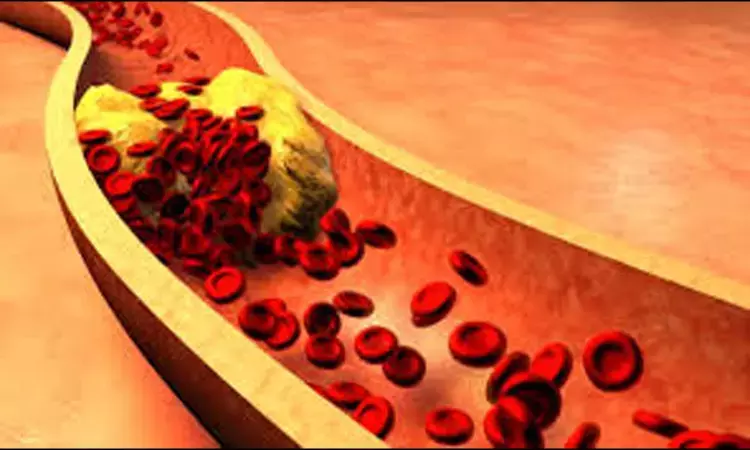- Home
- Medical news & Guidelines
- Anesthesiology
- Cardiology and CTVS
- Critical Care
- Dentistry
- Dermatology
- Diabetes and Endocrinology
- ENT
- Gastroenterology
- Medicine
- Nephrology
- Neurology
- Obstretics-Gynaecology
- Oncology
- Ophthalmology
- Orthopaedics
- Pediatrics-Neonatology
- Psychiatry
- Pulmonology
- Radiology
- Surgery
- Urology
- Laboratory Medicine
- Diet
- Nursing
- Paramedical
- Physiotherapy
- Health news
- Fact Check
- Bone Health Fact Check
- Brain Health Fact Check
- Cancer Related Fact Check
- Child Care Fact Check
- Dental and oral health fact check
- Diabetes and metabolic health fact check
- Diet and Nutrition Fact Check
- Eye and ENT Care Fact Check
- Fitness fact check
- Gut health fact check
- Heart health fact check
- Kidney health fact check
- Medical education fact check
- Men's health fact check
- Respiratory fact check
- Skin and hair care fact check
- Vaccine and Immunization fact check
- Women's health fact check
- AYUSH
- State News
- Andaman and Nicobar Islands
- Andhra Pradesh
- Arunachal Pradesh
- Assam
- Bihar
- Chandigarh
- Chattisgarh
- Dadra and Nagar Haveli
- Daman and Diu
- Delhi
- Goa
- Gujarat
- Haryana
- Himachal Pradesh
- Jammu & Kashmir
- Jharkhand
- Karnataka
- Kerala
- Ladakh
- Lakshadweep
- Madhya Pradesh
- Maharashtra
- Manipur
- Meghalaya
- Mizoram
- Nagaland
- Odisha
- Puducherry
- Punjab
- Rajasthan
- Sikkim
- Tamil Nadu
- Telangana
- Tripura
- Uttar Pradesh
- Uttrakhand
- West Bengal
- Medical Education
- Industry
Elevated TyG Index Linked to Higher Risk of Developing Gout: Study

Researchers found that greater triglyceride-glucose (TyG) index, a marker of insulin resistance, is highly associated with greater risk of gout development in the general population. The study, analyzing data from over 300,000 South Korean adults for 17 years, found that greater TyG index levels are a powerful predictor of gout development. The study was published in Scientific Reports journal by Yoonkyung C. and colleagues.
The study employed data from the South Korean National Health Screening Cohort Database from 2002 to 2019, enrolling 300,107 participants who had no gout history before enrollment and received at least three TyG index measurements. TyG index is derived from fasting glucose and triglyceride values and is regarded as a valid surrogate marker for insulin resistance. The aim was to study whether the change and the levels of this index over time would predict the development of gout.
Participants were followed for a median of 9.62 years (interquartile range: 8.72 to 10.53 years). Researchers applied time-dependent and average-based Cox proportional hazards analysis to evaluate the correlation between the TyG index and the development of gout, with adjustment for confounding variables of age, sex, BMI, lifestyle, and comorbidities.
Key Findings
• In follow-up, 14,116 patients about 4.72% of the cohort were diagnosed with gout.
The findings showed a strong and linear association between elevated TyG index levels and the development of gout:
• For each unit increase in the TyG index, the risk of gout increased by 15% (Hazard Ratio [HR] 1.150; 95% Confidence Interval [CI] 1.116–1.184).
• When participants were divided on the basis of quartiles of TyG index, the highest quartile had a 32.6% increased risk of gout as compared to the lowest quartile (HR 1.326; 95% CI 1.260–1.397).
• The findings showed a J-shaped curve indicating that risk of gout is fairly constant at lower levels of TyG but increases steeply after a cut-off point.
This large-scale, long-term cohort study confirms that a high TyG index is a robust and independent predictor of future gout risk in the general population. The observed dose-response relationship and the reported J-shaped pattern serve to reinforce further the role of metabolic health in the prevention of gout. Monitoring and regulation of insulin resistance through lifestyle or pharmacologic intervention may therefore offer an effective means to reduce the burden of gout worldwide.
Reference:
Chang, Y., Park, Jy. & Song, TJ. Association between triglyceride-glucose index and incidence risk of gout: a nationwide cohort study. Sci Rep 15, 26602 (2025). https://doi.org/10.1038/s41598-025-11217-1Dr Riya Dave has completed dentistry from Gujarat University in 2022. She is a dentist and accomplished medical and scientific writer known for her commitment to bridging the gap between clinical expertise and accessible healthcare information. She has been actively involved in writing blogs related to health and wellness.
Dr Kamal Kant Kohli-MBBS, DTCD- a chest specialist with more than 30 years of practice and a flair for writing clinical articles, Dr Kamal Kant Kohli joined Medical Dialogues as a Chief Editor of Medical News. Besides writing articles, as an editor, he proofreads and verifies all the medical content published on Medical Dialogues including those coming from journals, studies,medical conferences,guidelines etc. Email: drkohli@medicaldialogues.in. Contact no. 011-43720751


